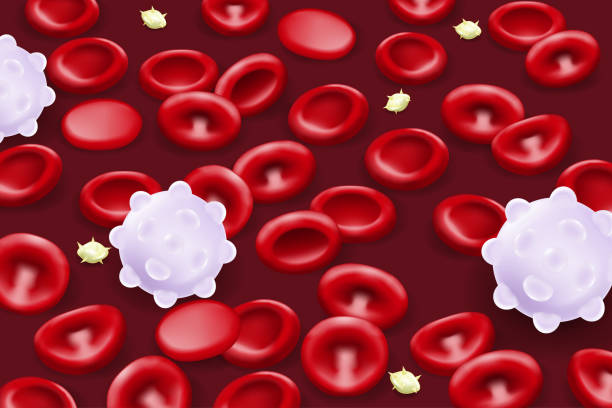Best doctor for thalassemia treatment in South Mumbai

Managing Thalassemia Treatment: Available Choices, Dangers, and Possible Advantages
A distinct set of difficulties arises from thalassemia, an inherited blood condition that affects the manufacturing of hemoglobin. Thankfully, there are efficient treatment choices available, allowing people with thalassemia to have happy, full lives. Dr Priti Mehta, Best doctor for thalassemia treatment in South Mumbai,provides comprehensive treatment for thalassemia The numerous treatments, their possible advantages and disadvantages, and the associated treatment processes are all covered in this article.
Recognizing the Treatment Need
Anemia results from thalassemia, which impairs the body's capacity to make healthy red blood cells. This deficit results in a lack of oxygen getting to the tissues and organs, which can lead to weakness, exhaustion, and stunted growth. Treatment attempts to deal with these problems by: Increasing the number of healthy red blood cells Controlling the development of extra iron (a consequence of frequent transfusions) reducing the likelihood of problems
Essential Therapy Choices: A Juggling Act
Positives and Negatives:
Every treatment strategy has benefits and drawbacks. While they provide quick relief, blood transfusions need to be managed continuously. Although it has adverse effects, iron chelation therapy prevents difficulties.Get consultation with dr priti mehta who is best doctor for thalassemia treatment in South Mumbai Although very risky, stem cell transplants have great potential for recovery. In the end, the choice of treatment is determined by the degree of thalassemia, personal health characteristics, and consultations with a medical team. Treatment Protocols: An Overview of the Steps Blood transfusions: Donated blood is received through an intravenous (IV) line after a needle is inserted into a vein at a medical institution. Patients are watched for any responses during the procedure, which might take several hours. Iron Chelation Therapy: Chelation medication is usually administered once a day and is available as an injectable or oral form. To track iron levels and treatment efficacy, routine blood tests are required. Supplementing with folic acid: Folic acid is typically given once daily in the form of tablets. Splenectomy: General anesthesia and hospitalization are necessary for this surgical treatment. The goal of post-operative care is to prevent infections, and recovery times vary. Stem cell or bone marrow transplant: This intricate process entails a rigorous conditioning regimen for the patient's bone marrow, which is then followed by the infusion of donor-sourced healthy stem cells. Weeks may pass while a patient is in the hospital, and careful observation is necessary to address any possible problems.
Conclusion
In conclusion, thalassemia treatment has come a long way, giving affected individuals more hope and a higher standard of living. Patients now have more viable alternatives for managing their disease because to advances in medical technology, especially in the areas of gene therapy and iron chelation therapy. As a potential treatment, gene therapy shows promise in treating the underlying genetic abnormality and reestablishing normal hemoglobin synthesis.Dr Priti Mehta is a recognized leading expert and best doctor for thalassemia treatment in south mumbai Although research and clinical studies are still in their early stages, the results are encouraging. Furthermore, iron chelation therapy has completely changed the way that Avoiding iron overload, a frequent side effect of thalassemia therapy, by lowering the chance of organ damage and enhancing general health. Additionally, supportive care interventions like folate supplements and blood transfusions are still essential for managing symptoms and promoting general health. There are still issues, though, such as the cost and availability of cutting-edge treatments, especially in areas with low resources. To guarantee fair access to life-saving treatments, healthcare practitioners, legislators, and the pharmaceutical sector must work together to address these discrepancies. Dr.Priti Mehta,a leading hematologist in south mumbai,delivers personalized Best doctor for thalassemia treatment in South Mumbai Furthermore, more research is required to improve the efficacy of currently available therapies, create novel therapeutic strategies, and broaden our knowledge of the pathophysiology of thalassemia. The future promises even more accessible and effective treatments through cooperation and ongoing innovation, eventually enhancing the lives of those who live with thalassemia worldwide.


